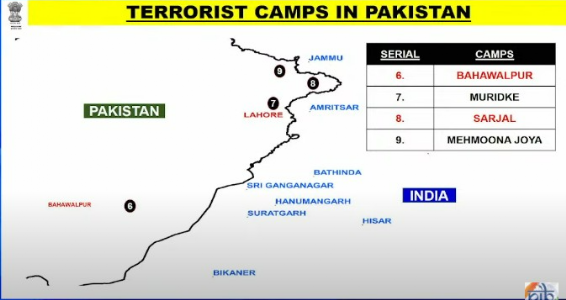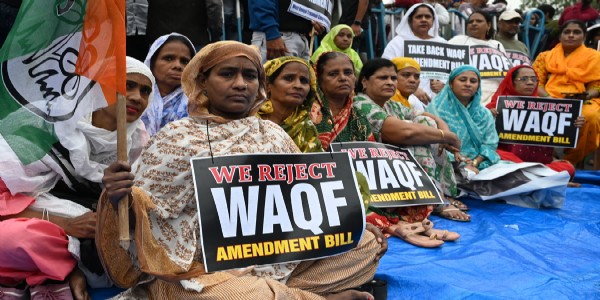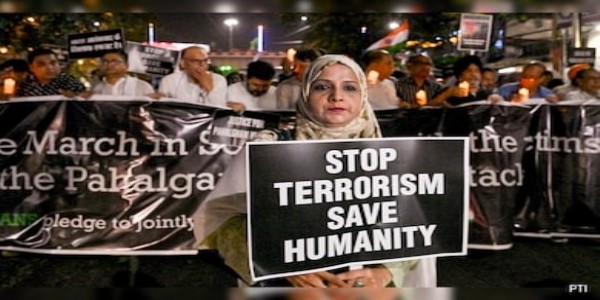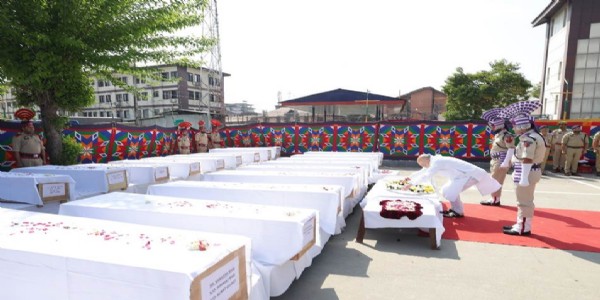The Dark Realities of Women Trafficking III: Unveiling Brutal Reality of Commercial Sex in South Asia
Total Views | 365
Dr Pravin Patkar, while speaking on institutional forms of sex trafficking, observed that prostitution or commercial sex exploitation is ( somewhat ) institutionalised in our society. Though it has been stated that women usually join this of their own will in South Asia, some facts raise doubts. It is observed that women from the lowest strata seem to be involved but their liberal choice is not seen in their activities or any other areas. Is freedom exercised in such decisions? Can they speak freely? When the system around them is found to be so oppressive and savage, does the theory of their volition mean anything? Probably women are left with no choice other than just surrendering to the brutal system.
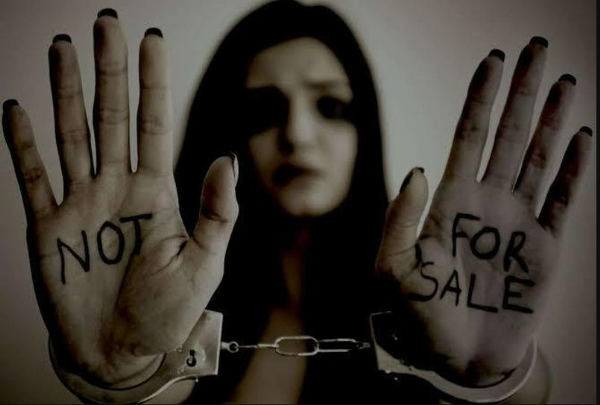
Traditions like Devdasis or Joginis seem to have religious colour. They mostly belong to untouchable castes. (Surprisingly don't remain untouchable when males from all the strata go to them as customers)
The entire structure works smoothly, the children are exploited, and they don't even realise it. Their families push them into it, and instead of protecting the children family becomes an accomplice and this apparatus works. Such girls are given the status of very fortunate women who are never widowed ( ? ) or favoured by fortune. Though their progeny does not get the status of being legitimate children, no dishonour or shame is attached to them. They seem to be sold in distant sex markets, but they can visit their homes, and send money to support families at native homes. Of course, there is no escape route, this kind of trafficking is treated to be a family trade(?). Society too supports it indirectly or unconsciously. All the operators work to keep traditions intact. This kind of violation of Human Rights is many times ignored by government agencies in the name of social custom.
They belong to some de-notified tribes such as Kanjaras which are not treated as criminals now. Still huge number of girls are forced into the sex trade even before they reach the age of maturity, male members are seen to be living on the earnings of their daughters and usually don't work in the labour market. Girls are conditioned for the sex trade and have no other way to go.
The labour sector also seems to have institutionalised slavery. Zamindar system had developed into a stable institution. The means of production like wealth and capital accumulated in the hands of a few along with the political power. It was so deeply rooted in the social psyche that people saw nothing wrong in it. Maybe it was accepted as fate and hailed.
Sometimes this works artfully, maybe exploiters work to make people feel that the oppressors are right. Victims are even ready to lay their lives to protect their masters. The structure functions smoothly and is many times not so explicitly and easily noticeable.
In Maharashtra women and young girls are regular victims of exploitation. Lagingadi is an example, such an arrangement works in the Thane district. Tribals when spend beyond their capacity on wedding ceremonies, are trapped in the maze of repayment. It never works in the interest of the labour, the calculation is such that even the next generation is held captive. Sexual exploitation of the bride was also observed by the author when he conducted a study in 1977.
The system of people that work and help as resident labour for the master hardly offers decent living facilities. They are not covered by labour law also.
USA and European countries also had the practice of buying slaves, which would give the masters rights over their body and soul to a great extent.
After independence, Karnataka Andhra Pradesh and Maharashtra passed laws against the tradition of Devdasi. Child trafficking did not receive similar attention. The law against devadidasis did not focus on buyers or customers though it bans the practice.
Bonded Labour ( Abolition) Act 1976 addressed the issue effectively.
It covers many related aspects of the practice.
Human trafficking is in a way so ingrained in the social psyche that in spite of laws, actions taken against the offenders, and punishment awarded, it results in trafficking repeatedly. Finding witnesses, their turning hostile, and victims' inability to appear in courts, are the difficulties that foil all the attempts of the administration.
Our society needs sustained movements run against this to create awareness. Of course, there are continuous attempts to eradicate such social evils no doubt. In our country, the author states that caste systems (maybe labelling some castes as criminal by British rule, which is legally abolished ), and the status of women in our society are factors that in a way support this. The situations in other countries are different, so are the reasons.
Ultimately as a society, we need to fight many long and one of the arduous and exhausting battles against women trafficking.

Traditions like Devdasis or Joginis seem to have religious colour. They mostly belong to untouchable castes. (Surprisingly don't remain untouchable when males from all the strata go to them as customers)
The entire structure works smoothly, the children are exploited, and they don't even realise it. Their families push them into it, and instead of protecting the children family becomes an accomplice and this apparatus works. Such girls are given the status of very fortunate women who are never widowed ( ? ) or favoured by fortune. Though their progeny does not get the status of being legitimate children, no dishonour or shame is attached to them. They seem to be sold in distant sex markets, but they can visit their homes, and send money to support families at native homes. Of course, there is no escape route, this kind of trafficking is treated to be a family trade(?). Society too supports it indirectly or unconsciously. All the operators work to keep traditions intact. This kind of violation of Human Rights is many times ignored by government agencies in the name of social custom.
They belong to some de-notified tribes such as Kanjaras which are not treated as criminals now. Still huge number of girls are forced into the sex trade even before they reach the age of maturity, male members are seen to be living on the earnings of their daughters and usually don't work in the labour market. Girls are conditioned for the sex trade and have no other way to go.
The labour sector also seems to have institutionalised slavery. Zamindar system had developed into a stable institution. The means of production like wealth and capital accumulated in the hands of a few along with the political power. It was so deeply rooted in the social psyche that people saw nothing wrong in it. Maybe it was accepted as fate and hailed.
Sometimes this works artfully, maybe exploiters work to make people feel that the oppressors are right. Victims are even ready to lay their lives to protect their masters. The structure functions smoothly and is many times not so explicitly and easily noticeable.
In Maharashtra women and young girls are regular victims of exploitation. Lagingadi is an example, such an arrangement works in the Thane district. Tribals when spend beyond their capacity on wedding ceremonies, are trapped in the maze of repayment. It never works in the interest of the labour, the calculation is such that even the next generation is held captive. Sexual exploitation of the bride was also observed by the author when he conducted a study in 1977.
The system of people that work and help as resident labour for the master hardly offers decent living facilities. They are not covered by labour law also.
USA and European countries also had the practice of buying slaves, which would give the masters rights over their body and soul to a great extent.
After independence, Karnataka Andhra Pradesh and Maharashtra passed laws against the tradition of Devdasi. Child trafficking did not receive similar attention. The law against devadidasis did not focus on buyers or customers though it bans the practice.
Bonded Labour ( Abolition) Act 1976 addressed the issue effectively.
It covers many related aspects of the practice.
Human trafficking is in a way so ingrained in the social psyche that in spite of laws, actions taken against the offenders, and punishment awarded, it results in trafficking repeatedly. Finding witnesses, their turning hostile, and victims' inability to appear in courts, are the difficulties that foil all the attempts of the administration.
Our society needs sustained movements run against this to create awareness. Of course, there are continuous attempts to eradicate such social evils no doubt. In our country, the author states that caste systems (maybe labelling some castes as criminal by British rule, which is legally abolished ), and the status of women in our society are factors that in a way support this. The situations in other countries are different, so are the reasons.
Ultimately as a society, we need to fight many long and one of the arduous and exhausting battles against women trafficking.
Bharati Web





